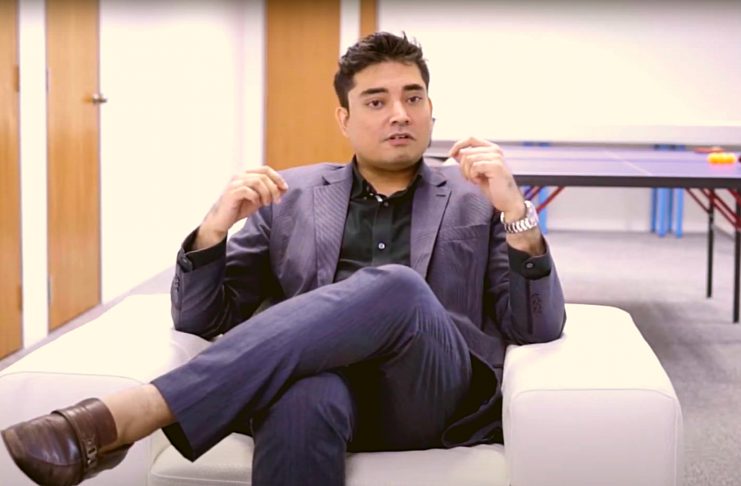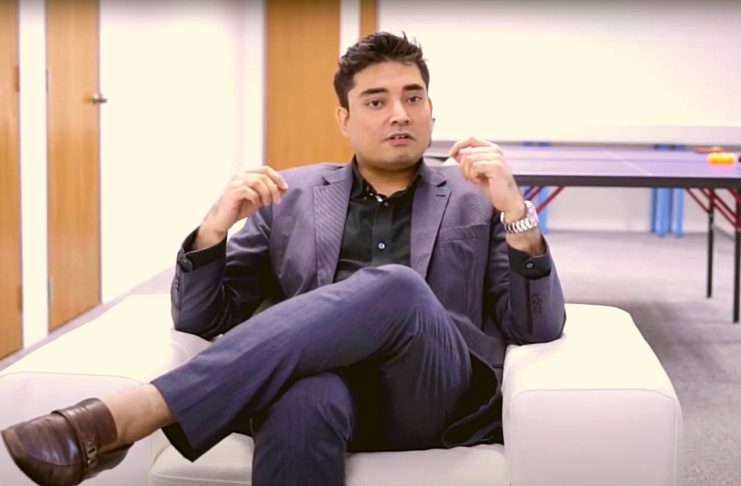Unlocking the Mind’s Potential: Sancy Suraj’s Memory Techniques
Sancy Suraj is a world-renowned memory coach who has set several impressive memory records. He holds the record for reciting the most digits of pi in Singapore, as well as identifying all the elements of the periodic table in just over four minutes. Sancy’s impressive memory skills are the result of years of training and experimentation with various memory techniques. In this article, we delve deeper into Sancy’s memory techniques and learn how he adapts them to different types of information, the role repetition plays in his memory training, how he maintains his memory skills over time, and the impact memory training has had on his ability to learn new things. We also get Sancy’s advice for anyone looking to improve their own memory skills.
Can you share with us some of your most effective memory techniques?

Certainly, I’d be happy to share some of my most effective memory techniques. One of the most important techniques that I use is visualization. This involves creating vivid and memorable images in my mind that are associated with the information I want to remember. For example, if I want to remember a list of groceries, I might visualize myself walking through a grocery store and picking up each item on the list. By associating each item with a visual image, I’m able to remember the list more easily.
Another technique that I use is called the Method of Loci, or the Memory Palace. This involves mentally placing information in a specific location, such as a familiar building or room. For example, I might place each item on my grocery list in a different room of my house. By mentally walking through the house and visualizing each item in its assigned location, I’m able to remember the list more easily.
I also use a technique called chunking, which involves breaking down larger pieces of information into smaller, more manageable chunks. For example, if I need to remember a phone number, I might break it down into groups of three or four digits. By chunking the information, I’m able to remember it more easily.
Finally, I use repetition as a memory technique. This involves repeating the information I want to remember multiple times, either out loud or in my head. By repeating the information, I’m able to reinforce it in my memory and make it easier to recall later.
These are just a few of the memory techniques that I use regularly. Each technique can be adapted to different types of information, and I often use a combination of techniques to remember different things. With practice and dedication, anyone can learn and apply these techniques to improve their own memory skills.
How do you adapt your memory techniques to different types of information?
Adapting my memory techniques to different types of information is a crucial aspect of my memory training. Different types of information require different approaches, and it’s important to be flexible and adaptable in order to remember as much as possible.
For example, when memorizing numbers, I use the Major System, which involves converting numbers into consonant sounds and then creating words out of those sounds. This allows me to remember long strings of numbers more easily by creating memorable words and phrases.
When memorizing text or speeches, I use a technique called the Story Method, where I turn the information into a story or narrative. This allows me to remember the information in a more structured way and helps me recall it more easily when I need it.
For memorizing names and faces, I use a technique called the Face-Name Association technique, where I associate a person’s name with a distinctive feature of their face. This helps me remember names and faces more easily, even when I meet a large number of people in a short amount of time.
In general, adapting memory techniques to different types of information requires creativity and experimentation. It’s important to try different techniques and see what works best for a particular type of information. With practice and experience, I’ve developed a toolkit of memory techniques that I can draw on in a variety of situations, which has helped me become a more effective learner and memorizer.
What role does repetition play in your memory training?
Repetition is a fundamental aspect of my memory training. When I first learn new information, I repeat it multiple times in order to commit it to memory. Repetition helps to strengthen the neural connections in the brain that are responsible for storing and retrieving information, making it easier to recall that information later on.
However, I don’t simply repeat information mindlessly. Instead, I use a technique called spaced repetition, where I review information at increasingly longer intervals over time. This technique has been shown to be more effective than simply repeating information over and over again.
Spaced repetition involves reviewing the information at set intervals, such as 24 hours, one week, one month, and so on. By spacing out the repetitions, the brain is forced to work harder to retrieve the information, which strengthens the neural connections even further. This technique is especially effective for memorizing information that needs to be retained over a long period of time, such as language vocabulary or historical dates.
In addition to spaced repetition, I also use a technique called active recall, where I try to recall information from memory rather than simply reviewing it passively. This technique has been shown to be more effective for long-term retention of information.
Overall, repetition is a critical component of my memory training. By using spaced repetition and active recall, I’m able to strengthen my memory and recall information more easily and accurately over time.
“Repetition is the backbone of memory training, but it’s not a mindless activity. Through the strategic use of spaced repetition and active recall, we can strengthen our neural connections and build a robust memory system that lasts a lifetime.”
How do you maintain your memory skills over time?
Maintaining my memory skills over time requires ongoing practice and discipline. Just like any skill, memory requires consistent effort and attention in order to stay sharp.
One way that I maintain my memory skills is by continuing to practice the memory techniques that I’ve learned. I make sure to set aside time each day to practice memorizing new information, whether it’s a list of names or a sequence of numbers. This helps to keep my memory skills sharp and prevents them from becoming rusty.
In addition to daily practice, I also try to challenge myself by taking on new memory-related projects or goals. For example, I might try to memorize a new deck of cards or learn a new language. By constantly pushing myself to learn and remember new things, I’m able to maintain and even improve my memory skills over time.
Another important aspect of maintaining my memory skills is taking care of my overall health and well-being. This includes getting enough sleep, exercising regularly, and eating a healthy diet. All of these factors can impact cognitive function and memory, so it’s important to prioritize them in order to maintain optimal memory performance.
Overall, maintaining my memory skills requires ongoing practice, discipline, and attention to my overall health and well-being. By making memory a priority and challenging myself to learn and remember new things, I’m able to stay sharp and continue improving my memory over time.
How has memory training impacted your ability to learn new things?
Memory training has had a significant impact on my ability to learn new things. By developing my memory skills, I’m able to more easily remember new information and concepts, which allows me to learn more quickly and effectively.
For example, when learning a new language, having a strong memory can be a huge advantage. With good memory skills, I’m able to quickly learn and retain new vocabulary and grammar rules, making it easier to communicate in the new language.
Similarly, in academic or professional settings, having a strong memory can help me absorb and retain new information more easily, allowing me to perform better and make more informed decisions.
Memory training has also helped me to become more creative and innovative in my thinking. By developing new memory techniques and constantly challenging myself to memorize new things, I’m able to think more flexibly and come up with new ideas more easily.
Overall, memory training has had a profound impact on my ability to learn and succeed in a variety of settings. By improving my memory skills, I’ve been able to expand my knowledge and abilities, which has opened up new opportunities and helped me to achieve my goals.
“Memory training is the foundation for successful learning, enabling us to build a strong framework of knowledge that allows us to construct, innovate and expand our understanding of the world around us.”
When asked about his most effective memory techniques, Sancy Suraj shares that he has experimented with a variety of techniques over the years, but that the most effective ones for him are the Method of Loci and the Peg System. He also emphasizes the importance of finding the right techniques that work for each individual, as everyone’s brain works differently.
Sancy also shares how he adapts his memory techniques to different types of information. For example, when memorizing numbers, he uses the Major System, which assigns each digit a sound that can be easily linked to a word. When memorizing words, he uses the Link System, which involves creating a story or mental image that links the words together. By adapting his techniques to different types of information, Sancy is able to more effectively memorize a wide range of content.
In terms of repetition, Sancy acknowledges that it plays an important role in memory training. However, he emphasizes the importance of active recall, or trying to recall information from memory rather than simply reviewing it passively. Sancy also shares how he maintains his memory skills over time, which includes regular practice and setting new challenges for himself.
What advice would you give to someone who wants to improve their memory skills?

If someone wants to improve their memory skills, there are a few key pieces of advice that I would give.
Firstly, it’s important to practice consistently. Like any skill, memory requires regular practice and attention in order to improve. Setting aside time each day to practice memorization techniques and challenge your memory is essential for making progress.
Secondly, it’s important to find the right techniques that work for you. Everyone’s brain works differently, so what works for one person may not work for another. Experiment with different memory techniques, such as the Method of Loci or the Peg System, to see which ones work best for you.
Thirdly, it’s important to focus on active recall. This means trying to recall information from memory, rather than simply reviewing it passively. Active recall has been shown to be more effective for long-term memory retention.
Another piece of advice is to make connections between new information and existing knowledge. By linking new information to things you already know, you can strengthen the neural connections in your brain, making it easier to recall the information later on.
Finally, it’s important to take care of your overall health and well-being. Factors like sleep, exercise, and diet can all impact cognitive function and memory. Make sure to get enough sleep, exercise regularly, and eat a healthy diet in order to give your brain the best chance of performing at its best.
Overall, improving your memory skills requires consistent practice, experimentation with different techniques, a focus on active recall, making connections between new information and existing knowledge, and taking care of your overall health and well-being. With dedication and effort, anyone can improve their memory skills and achieve their goals.
“Memory is not just a gift, it’s a skill that can be honed. To improve it, practice consistently, find the right techniques that work for you, focus on active recall, make connections with existing knowledge, and prioritize your overall well-being. Remember, memory improvement is within reach with a little bit of dedication and effort.”
In conclusion, Sancy Suraj’s impressive memory skills are the result of years of dedicated practice and experimentation with various memory techniques. By finding the right techniques that work for him, adapting them to different types of information, and incorporating active recall into his training, Sancy has been able to achieve incredible memory feats. His advice for anyone looking to improve their own memory skills includes consistent practice, experimentation with different techniques, a focus on active recall, making connections between new information and existing knowledge, and taking care of one’s overall health and well-being. With dedication and effort, anyone can improve their memory skills and unlock the potential of their mind.














